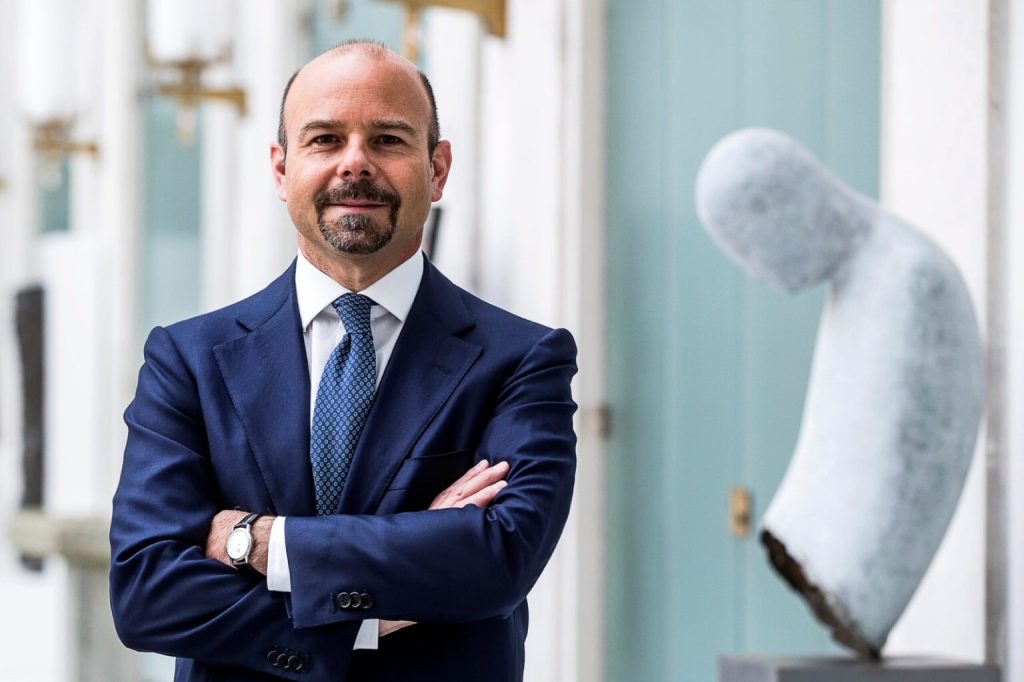:quality(80)/business-review.eu/wp-content/uploads/2022/12/OECD-1.jpg)
With the Organisation for Economic Co-operation and Development (OECD) having initiated accession negotiations with Romania at the beginning of this year, the Italian Embassy in Bucharest held a special workshop on the Anti-Bribery Convention, which is a critical instrument in the country’s efforts to become an OECD member and build a transparent trade and investment environment.
By Ovidiu Posirca
The workshop, jointly organised with the Romanian Justice Ministry, was attended by high-ranking officials in both countries.
“Today’s event proved useful in explaining to practitioners, magistrates, lawyers, and people dealing with corporate compliance programmes about the effectiveness of the OECD Convention in preventing and fighting foreign bribery. Romania has already taken some important steps in this regard,” Alfredo Durante Mangoni, the Ambassador of Italy in Romania, told BR. He added that the event was also aimed at sharing Italy’s experience in terms of corporate criminal liability in the context of the Anti-Bribery Convention.

As for Romania’s ongoing negotiations to join the OECD, the ambassador pointed out that the country must respond to different standards and benchmarks that are established within each of the 26 technical committees that are called to issue their opinion on Romania.
“As far as Italian companies are concerned, we would of course be very pleased to see that Romania adopts and implements the same integrity, anti-corruption, accountability, and good governance practices, all of which also have an impact on securing foreign investments,” the ambassador added.
Mangoni went on to explain that Romanian companies—be they private or state-owned—that go abroad to carry out international trade and investment must act in compliance with the Anti-Bribery Convention.
According to Antonio Gullo, professor of criminal law at the LUISS Guido Carli University in Rome, the conference was a great opportunity for the two countries to share experiences in the field of anti-corruption, which is key in the general strategy to fight economic crimes. Efforts to combat corruption are already supported by Romania’s European Union membership, which brings important rule of law benchmarks.
“I would just highlight one, namely the whistleblower protection policy, also a crucial element in the fight against corruption. I believe that many synergies can be exploited in terms of implementing both EU law and OECD standards,” Mangoni argued.
Romania could join the OECD by 2025
OECD accession has been one of Romania’s foreign policy objectives since 2004, when it first applied for membership. The Foreign Affairs Ministry (MAE) points out that the country “could join the OECD in the medium-term” as it has a “generally favourable assessment” from the organisation, which currently counts 38 members including states in Central and Eastern Europe such as Poland, the Czech Republic, and Hungary.
Lorenzo Salazar, Vice-Chair of the OECD Working Group on international bribery, told BR that Romania could become a full member of the OECD by mid-2025 if it gets the approval of all technical committees.
“Once you will have fulfilled all the obligations and effectively implemented the OECD convention against bribery, I believe it will be in the interest of not only Romania, but also the OECD to receive you as a new party in the organisation,” Salazar said.
The OECD Anti-Bribery Convention establishes legally binding standards to criminalise bribery of foreign public officials in international business transactions and provides a host of related measures that make this effective. It is the first and only international anti-corruption instrument focused on the “supply side” of the bribery transaction, according to a description provided by the organisation. Asked if OECD accession would help Romania attract more foreign investment, the Italian ambassador pointed out that it could enhance the country’s business relations with non-EU states.
How Romania could benefit from joining the OECD
The MAE points out that as an OECD member, Romania would be acknowledged as a functional market-based economy and a consolidated democracy, which would positively impact the country’s rating and its ability to attract foreign investment.
Romania will also benefit from support regarding public policies from OECD member states through periodic evaluations of the country’s policies in specific domains (peer review) and the proposal of recommendations for their improvement. Currently, Romania participates as a member or associate in 22 committees (procedures are ongoing for another 3), and as a guest in more than 40. The country has also adhered to 54 OECD legal instruments and has applied for adherence to 12 others. “The fight against corruption is a crucial challenge for the international community, and it cannot be overcome without the active participation of societies in partnership with the public sector,” professor Gullo argued during the workshop, according to a press statement. “On the road to ensuring a level playing field, the integrity of society will also be achieved through the implementation of effective strategies to combat economic crime. Italy has developed an internationally acclaimed model of criminal liability for legal persons, with the aim of involving legal persons in the joint management of corruption risks through the adoption of compliance programmes.”



:quality(80)/business-review.eu/wp-content/uploads/2024/07/vodafone-RO.jpg)



:quality(80)/business-review.eu/wp-content/uploads/2024/06/22C0420_006.jpg)

:quality(80)/business-review.eu/wp-content/uploads/2024/06/COVER-1-4.jpg)



:quality(80)/business-review.eu/wp-content/uploads/2024/06/br-june-2.jpg)
:quality(50)/business-review.eu/wp-content/uploads/2024/07/BeFunky-collage-37-scaled.jpg)
:quality(50)/business-review.eu/wp-content/uploads/2024/07/04_ThinkPad_T14s_6_Business_Coworking.jpg)
:quality(50)/business-review.eu/wp-content/uploads/2024/07/Iulia-Surugiu-scaled.jpg)